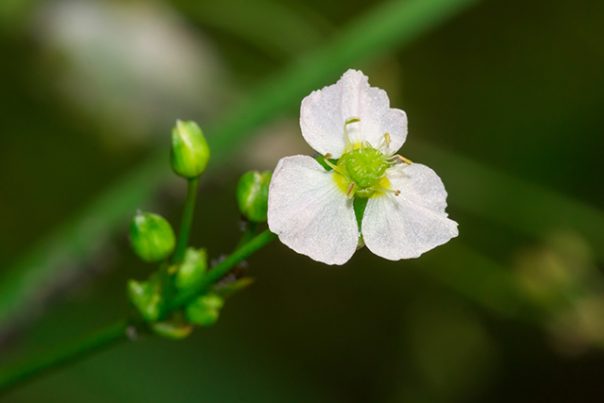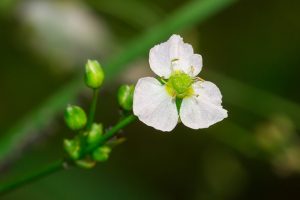- Herbs.news
- Fresh.news
Alisma – sources, health benefits, nutrients, uses and constituents at NaturalPedia.com
Tuesday, August 29, 2017 by Earl Garcia
http://www.naturalpedia.com/alisma-sources-health-benefits-nutrients-uses-and-constituents-at-naturalpedia-com.html

Alisma is a perennial aquatic plant that belongs to a genus of flowering plants known as Alismataceae. It is usually found in shallow waters such as lakes, rivers, and brackish water bays. The plant is distributed worldwide and is characterized by its triangular flower and short fruit. According to the Luonto Porrti website, the plant starts to flower in June and continues to do so throughout the summer. The aquatic plant is also called water plantain, mad dog weed, and oriental water plantain.

List of known nutrients
Alisma contains potent constituents that promote the body’s overall well-being. According to an Herbpathy entry, alisma possesses the following components:
- Alisol
- Alkaloids
- Asparagine
- Biotin
- Calcium
- Essential Oils
- Falvones
- Lecithin
- Potassium
- Stigmasterol
- Sulfate
- Triterpenoids
- Vitamin B12
- Volatile Oils
Medicinal uses for alisma
Alisma is known to promote digestive health due to its high fiber content. The rich fiber content in alisma helps facilitate proper digestion, improve bowel movement, and relieve constipation, thus inducing healthy weight loss as excess water is eliminated from the body. Alisma is found to relieve other digestive issues such as stomach flu, heartburn, cramps, bloating, and diarrhea.
Ingesting the leaves is also found to reduce swelling in both the digestive and urinary tract. The plant is shown to inhibit fatty deposits in the liver as well.
The plant is shown to possess strong diuretic properties that boost kidney health and treat various related conditions. According to the Herbs for Health website, alisma promotes proper renal function and helps the kidneys filter out toxins and wastes.
The herb is found to strengthen the bones as well. Alisma is notably high in calcium that fortifies the bones, teeth, and muscles. This makes it an excellent supplement against bone-related diseases such as osteoporosis.
Hypertensive people are known to greatly benefit from the herb. An entry posted on the Home Remedies for You website notes that alisma helps reduce lipid levels and cholesterol rates in the blood. The plant is shown to slash blood sugar levels as well. This makes alisma an ideal food fare against diabetes onset.
An article posted on the Ask Dr. Mao website also reveals that alisma contains potent antibacterial properties that help expel phlegm from the body. Likewise, the herb is found to reduce fevers, dizziness, and ringing in the ears.
Moreover, alisma is touted to promote both male and female health. The plant is known to boost milk production in lactating mothers and address nightly emissions, premature ejaculation, and spermatorrhea in men.
Body systems supported by alisma
Alisma is known to promote the digestive system’s overall health. The plant also supports kidney profile and maintains a healthy urinary tract. Likewise, the herb is found to boost bone and muscle integrity and enhance the body’s immunity. Aside from this, the herb is shown to improve both male and female health.
Ways to use alisma
The roots of alisma are commonly used to make homeopathic treatments, while the leaves can be processed into poultice for bruises and swelling. Likewise, traditional Chinese medicine practitioners usually combine alisma with other medicinal herbs — such as lycium chrysanthemum, rehmania, schizandra and cornus — to treat various infections. Alisma products are sold dried or in capsule form, and can be found mostly in Asian stores.
Where to learn more
Summary
Alisma improves digestion and addresses various related conditions.
Alisma prevents diseases of the kidneys and the liver.
Alisma staves off hypertension and diabetes.
Alisma keeps osteoporosis, infections, and respiratory issues at bay.
Alisma is beneficial to both the digestive and urinary systems.
Alisma fortifies the bones, muscles, and teeth.
Alisma promotes male reproductive health.
Sources include:
Tagged Under: Tags: Alisma






